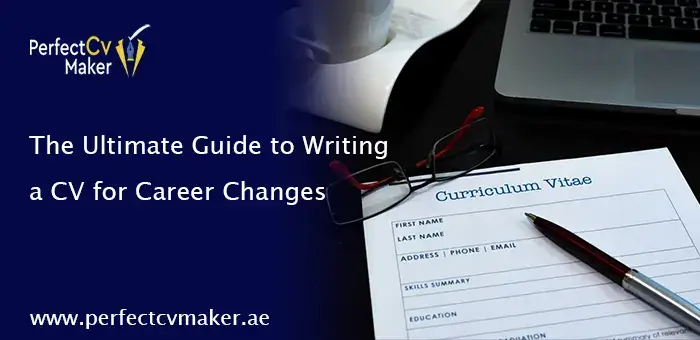Are you thinking of shifting your career to another role but have no clue how you can tailor your CV according to the job description? Don’t worry! We’ve got your back.
Many industry professionals struggle to highlight the relevant skills and achievements when transitioning to a new career. It is not a big deal.
In fact, by following some essential tips and tricks, you can craft a perfect CV and be prepared to make career changes.
So what are you waiting for? Dive deep into our blog and discover the right strategies for crafting a resume that aligns with your career path.
Here we will uncover the essential elements you must include, along with how to highlight the transferable skills and some writing tips.
So come on! Let’s get started!
Why Is a Well-written CV Vital When Changing Careers?
Before we dive into the tips for writing a CV, you need to understand the importance of a well-written one.
As you already know, it is the only way to grab your interviewer’s attention and stand out from other applicants.
Therefore, you can’t submit the same old boring CV, especially when shifting careers. Instead, it should highlight things like:
- The resume should show your passion and excitement for the career change.
- Moreover, it must highlight your past experiences.
- The great CV for a career change must include transferable skills with a demonstration.
- It should communicate your career goals and what you aim to achieve in the job.
Remember, if you want to grab the job you want for quite some time, having a solid resume is the key. Also, don’t make the mistake of submitting the same one. Instead, tailor it according to the career you are shifting towards.
Let’s find out how you can do it.
Essential Elements to Include in the CV For Career Changes
Are you working on the CV for a career change? Then follow this checklist. Here are some key elements that your resume should include at any cost.
- Professional Summary: Always write a concrete professional summary where you state your career goals, relevant skills, and experience.
- Skills: Do you want the interviewer to read your resume and say This is what they are looking for? Then don’t forget to add your key skills and qualifications relevant to the new job description.
- Work Experience: You must have gained enough transferable work experience from previous roles. Hence, talk about that.
- Training: Do you have any prior training for the new role? Make sure to write it in your CV as it shows your commitment to getting that job.
- Awards: Another key element you should include in the CV is the awards to show your skills.
There you go – make a checklist of these elements and see if you have included them in the CV. This does look like a big deal. So if you want, you can seek guidance from the CV editors. They have expertise and can help you craft a solid resume. Now let’s discover the writing tips for your CV.
Tailor Your CV For Your New Career With These Tips
Individuals, when shifting careers, find it difficult to tailor their CVs according to the job role. But not anymore, as these tips can help you. They include:
Tip 1: Research Your Industry
Before you start working on the CV, research the job industry first. Make sure you have enough knowledge about it.
Furthermore, read the job requirements to see if you are qualified to apply. This will make it easier for you to highlight your skills and qualifications.
Tip 2: Use Industry-Specific Language
Since you are changing your career to a different industry, you can’t use the same language in the new CV. Imagine you are shifting from finance to marketing. However, the resume includes all the finance-related language.
Will the employer be impressed?
No!
Therefore, make sure to use industry-specific language. This will help showcase your knowledge and commitment towards the career change. Just make sure the terms are in the right context.
Tip 3: Don’t Forget to Highlight The Transferable Skills
If you are changing careers and want to be the first choice for employers, having transferable skills is essential.
Well, what are they?
In simple terms, these skills are not industry-centric and can be used across various industries. We all have them. Hence, make sure to add them.
Here are some skills to keep in mind:
- Communication Skills: Demonstrate your ability to communicate ideas effectively to your teammate. Don’t just tell, instead show them with an example.
- Problem Solving: Tell interviewers about your ability to identify the problem and solve it.
- Leadership: If you are applying for a managerial role, having solid leadership skills is essential. So highlight them. Tell how you can motivate and inspire your team.
- Time management: State your time management skills and tell how you will prioritize the task with other commitments.
When shifting careers, your CV is only a piece of paper without these transferable skills. Therefore, never skip this part.
Tip 4: Show Your Experience
Surely, before deciding to change careers, you may have taken some training or have experience. Therefore, you made the decision.
So don’t forget to talk about it. Make sure you demonstrate your skills and knowledge for the new role. Also, back up your work with examples. This helps build credibility.
Tip 5: Mention the Projects
Another thing while creating a CV for a career change is to mention the projects you have done. Therefore, if you have any hands-on experience from the previous role or the new one, make sure to add it.
Furthermore, ensure that they align with the skills you have mentioned in the resume. This will help you make a good impression on the employers.
Tip 6: Always Proofread
Once you are done writing the CV, take a short break and then come back for proofreading. Remember the checklist you made earlier? Well, keep it in front of you and start editing. Make sure you have added all the relevant sections. Also, if you want, you can connect with the CV editing services. They have experience and can help you. With their feedback, you can submit an exceptional resume.
Wrapping Up!
So that’s a wrap! For individuals shifting their careers, tailoring the CV according to their new role is essential. But how? For this, you need to research your job description, use industry-specific language, show your experience, mention the projects, and don’t forget to highlight the transferable skills. Also, once you have completed writing, take time to proofread. Ensure that everything is well-written. You can also seek help from the professionals.
By following these tips, you can have a solid resume in your hand and will be ready to take your career to the next level. All the best!









